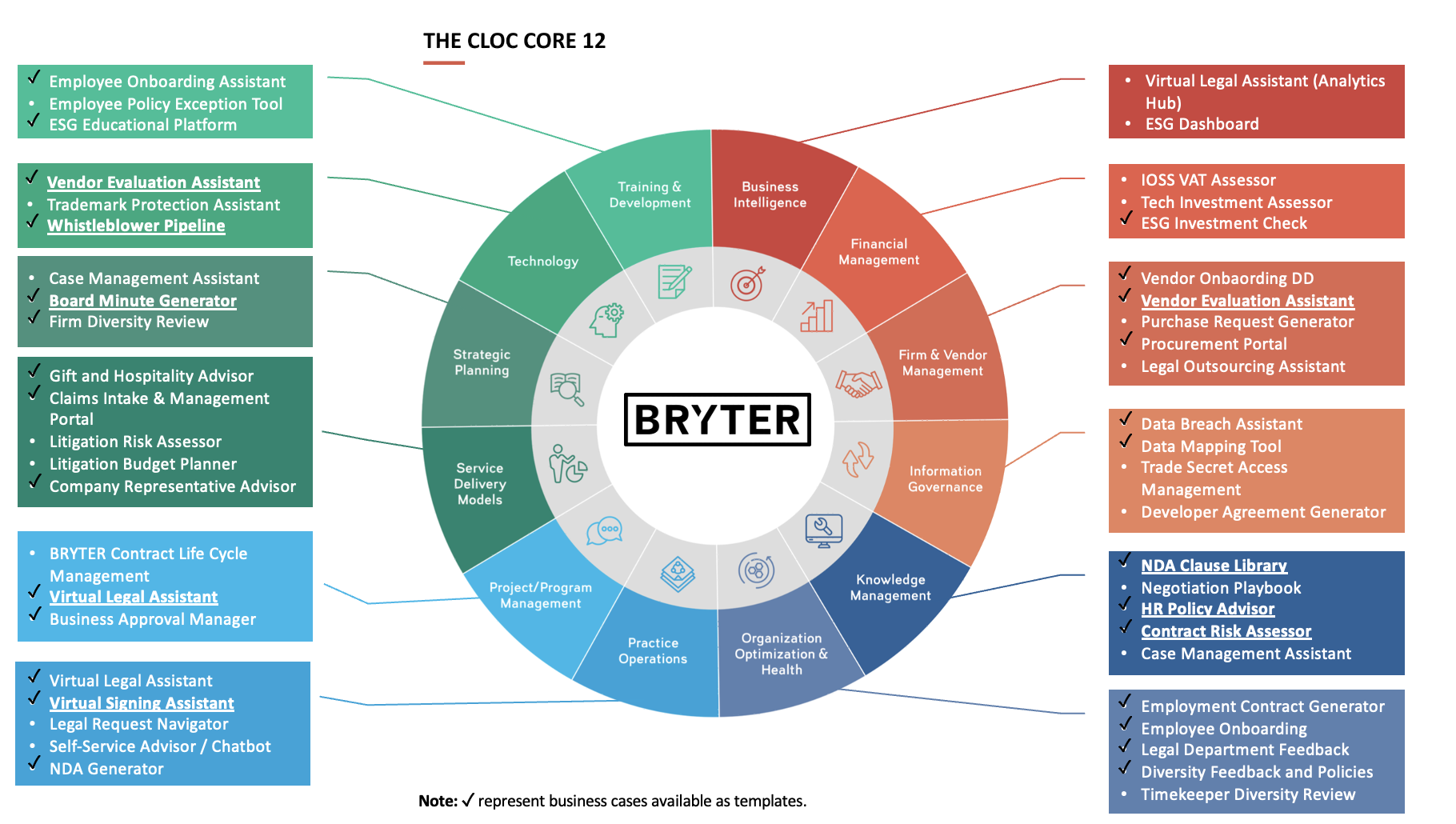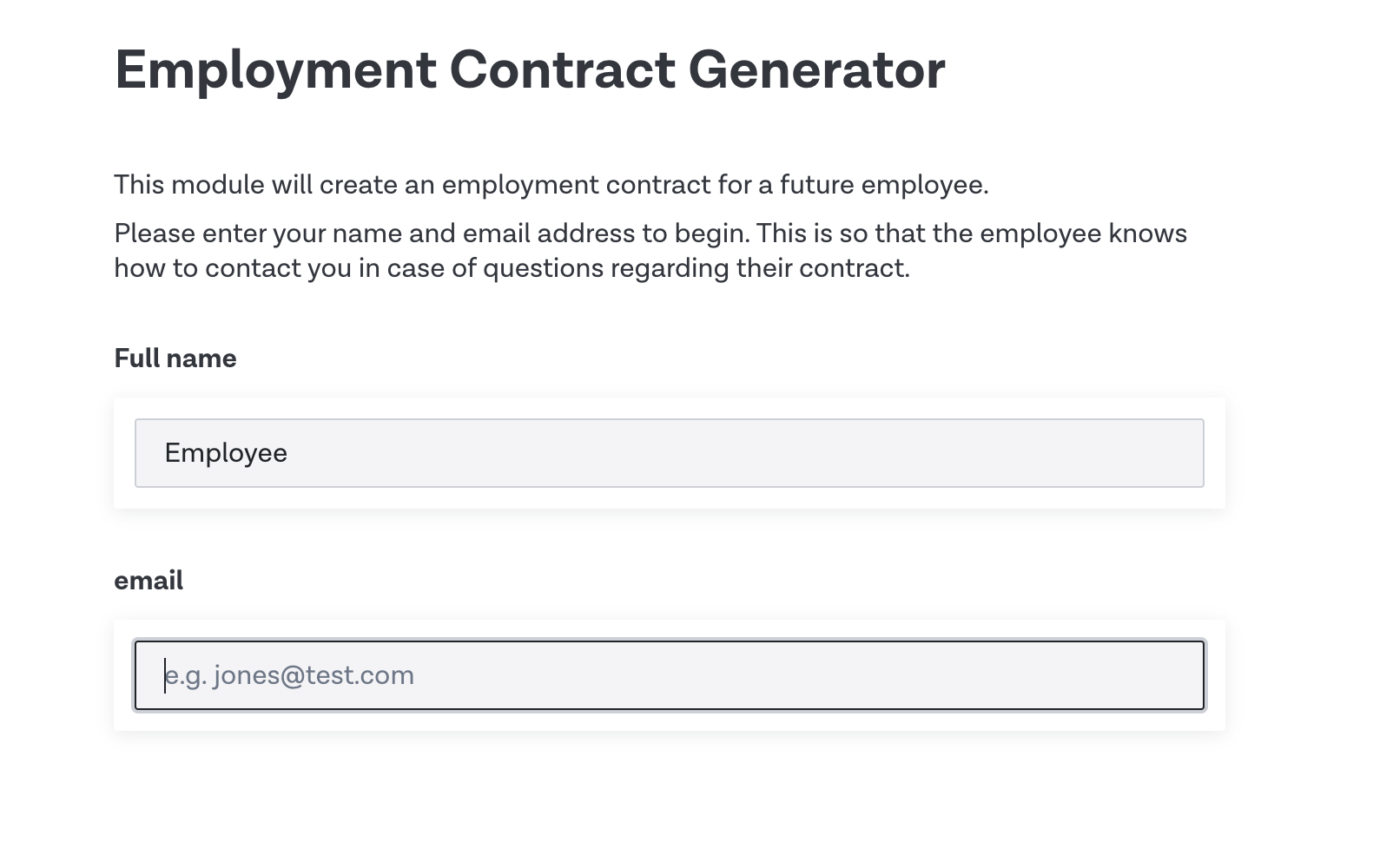Legal operations is a relatively new field that has quickly demonstrated its value across corporates – and will continue to do so. Right now, however, this department is too-often still missing the right tools to fit into their day-to-day processes.
Legal Ops professionals typically need to adapt existing legacy software to their needs, which not only slows down their daily output, but significantly minimizes the positive impact they can have on other business units. It also significantly limits data-informed decision making.
In this article, we explain how you can find the right legal operations software for your team, and the features to look for to unlock the full power of Legal Ops.
What is legal operations software?
Legal operations software describes a wide range of specialized tools and applications that legal operations professionals use in their day-to-day work. Given the varied nature of legal ops work, legal operations software can either refer to several different pieces of software for different uses cases — such as eBilling, contract management, request intake, and legal spend management — or it can refer to a single piece of software that supports all these different functions.
The benefits of Legal Operations software
If the legal operations team exists to help Legal work more efficiently, then legal operations software exists to help the team achieve this goal. These tools bring about ample benefits across the board, so we’ve grouped them into several different areas.
Ensure process efficiency
Quality legal ops platforms ensure that all tasks — from managing outside counsel, to helping draft contracts and assess potential vendors, to reporting to GCs — are done as efficiently as possible, without unnecessary manual work or needless operational bottlenecks.
This means that any “excess” manual work, such as copying and pasting from existing documents, doing guesswork when estimating the costs of existing vendors, or manually calculating current legal spend, is removed, and instead turned into automated, self-service applications that all stakeholders can use, at any point.
Enable data-informed decision making
Data management and information governance are key tasks for Legal Ops. Legal operations software turns manual data management efforts into powerful, always-accessible data powerhouses.
This means that instead of countless, separate spreadsheets on matters such as external counsel spend and project tracking, legal operations software enables the team to keep a single data center, where all data is available for use by anyone in the organization who needs it, whether that’s in-house counsel, GCs, or the C-Suite.
Allow other business units to get legal guidance in real-time
The benefits of an effective legal ops tech stack don’t end with in-house legal. In fact, with the right tools, Legal Ops can quickly turn the team’s legal expertise and guidance into a readily available, interactive tool that any employee can rely on in case of a doubt on how to proceed when interacting with clients or vendors.
This not only reduces the number of requests flooding your legal team, but also allows the entire organization to self-service. Legal expertise becomes available, not restricted, which means fewer clogged processes for all business units.
Automate repetitive, but business-critical tasks
The vast majority of in-house legal departments find that repetitive tasks take up too much of their time. And at the same time, most struggle to keep the current workload at bay. Still, the fact of the matter is that these tasks — such as generating NDAs, assessing vendors, or tracking legal spend and generating company-wide policies — need to be done.
Legal operations software lets teams automate these vital, repetitive tasks in a way that does not create double work, and involves in-house counsel only when necessary. This leads to fewer operational obstacles and allows Legal Ops to establish efficient processes where deals don’t get stuck and work is carried out compliantly, across departments.
How to choose the right legal operations software for your business
For all the benefits that legal operations tools bring, there is no guarantee that one tool will work for your organization. The needs and processes of your organization might differ vastly from the next, so it’s important to know what criteria to use when talking to vendors and deciding which tools to adopt. We put together a list of benchmarks to use below:
Easy alignment
Given the workload and the scope of legal operations work, it’s imperative that your software easily aligns with the existing processes and workflows, rather than having your entire team adjust to the software. A good legal ops tool needs to be flexible and seamlessly integrated within current business processes and environments, so that there are no big disruptions to your teams’ performance.
Smooth implementation
Some legal ops teams are reluctant to embrace tools due to previous poor implementation experience. This step can either help create tangible benefits more quickly, or create a lot of resistance towards a new piece of software among team members, which can easily lead to lower adoption and wasted resources. So it’s crucial that you have a smooth adoption plan for any legal technology before purchasing it.
IT involvement
Any changes to a department’s tech stack naturally involve IT, but when the IT department itself is swarmed with requests, sourcing, selecting, and implementing a legal tool can turn into a lengthy, inefficient process.
When deciding on which legal ops tool to get, consider the extent to which the IT team will need to be involved. You want to find the sweet spot where IT might need to get involved for some exceptional cases, but have the majority of administration handled by your own legal ops team.
Ease of use
There are now numerous tools that legal ops teams can benefit from in the market, so there’s no reason to settle for anything less than one with exceptional ease of use. You want your legal ops software to be intuitive and efficient, while requiring no tech expertise to set it up or run it. No-code powered legal ops tools allow any legal expert to easily build their own app and have them running in a matter of hours.
BRYTER, for example, is a no-code automation platform that empowers legal ops experts to create their own apps without requiring any knowledge of coding or assistance from IT. Apps created on BRYTER can be easily maintained and updated by the legal ops team as requirements and company policies change.
Measurable success
As metrics lie at the core of legal ops competencies, it’s important to find a tool that lets anyone on the team easily get vital business metrics that show the improvements that your updated tech stack has brought about. Efficiency boosts need to be translated into specific, concrete metrics, such as less time spent on contract management, shorter cycles to source a new vendor, or fewer non-compliant activities from other business units.
Legal operations software in practice: most common use cases
Because legal ops’ activities span the entire organization, from signing on new partners to publishing corporate policies on gifts and day-to-day conduct with partners and customers, we put together a quick highlight list of areas where legal operations software is especially helpful:
- Contract lifecycle management
- Legal intake
- Workflow automation
- Spend management
- Project management
- IP management
- HR process tools
For an all-in-one legal operations solution, all of these uses case categories can be addressed with BRYTER by easily building custom apps or customizing from a library of hundreds of templates — no coding required. Below are some examples of the most popular tools for legal ops teams.
Many of the key legal ops functions outlined by CLOC (the CLOC Core 12) can be directly addressed with existing templates pre-built in BRYTER.

Gift and hospitality checker
A gift and hospitality checker provides the business with the self-service guidance they need to determine whether they can accept a gift, without requiring time from the legal team to answer their one-on-one query. The company’s policies regarding acceptable gifts can be presented in an interactive questionnaire, which analyzes the responses and delivers the correct solution according to the legal team’s specifications.

Vendor evaluation tool
A vendor evaluation tool can help businesses stay compliant with regards to the third parties they plan to hire. Like the gift and hospitality checker above, this tool makes legal expertise accessible to the organization and is created to suit specific requirements for the legal and legal ops teams, all using a web-based app that can be linked to from an internal page for employee use.

Responses to this tool can be recorded to evaluate use and compliance rates, automatically measuring and providing data about the tool’s performance — and will only involve an expert on the legal team if necessary.
Contract generators
Perhaps one of the most transformative tools for legal ops teams and the wider business, contract generators can save enormous amounts of time. These tools integrate with existing software like DocuSign and Microsoft Word to generate custom, complete, and accurate contracts, which can be reviewed by a member of the legal team but no longer need to be fully created by them.

These are just some of the examples of solutions that Legal Ops teams can create using BRYTER – more templates are available, and the platform’s flexibility leaves it open to creating virtually any workflow automation tool that users can think of.
Legal Ops Software FAQs
A legal operations platform is a piece of software, or a collection of different software, that empowers legal ops teams. A legal ops platform can accelerate legal processes, collect and report on data related to those processes, track legal spending, and more.
Legal management systems refer to any software concerned with the management, improvement, and tracking of legal tasks within an organization.
Legal ops teams use a variety of software from eBilling and CLM solutions to all-in-one workflow automation platforms like BRYTER.
BRYTER has award-winning customer support to help you understand the best ways software can enable your legal ops team. To learn how our software can help you, book a free demo and ideation session with one of our experts.
Legal operations software must work for your team, not the other way around
We’ve seen how legal operations software can speed up your legal ops team, and help you deliver a better experience not just to in-house counsel, but the entire organization. The right platform can efficiently automate repetitive manual tasks, enable data-driven decisions, and is easy for the legal ops team to implement, use, and maintain without reliance on IT.
A good legal ops tool places the legal experts at the center, but factors in the benefits for the entire organization. After all, when your in-house counsel are enabled to focus on high-impact work, this benefits the entire organization, and each individual employee. No-code solutions tailored to legal ops teams, like BRYTER, offer all of these benefits in one.
If you’re looking to empower your legal ops team with a versatile tech stack, book a demo of BRYTER today. Or if you’d like to expand your knowledge on this topic, read our Legal Operations Automation blog and our tips about how to set up your legal operations team for success.











